New Model Army - Interview with Justin Sullivan
by Helen Tipping
published: 30 / 11 / 2005
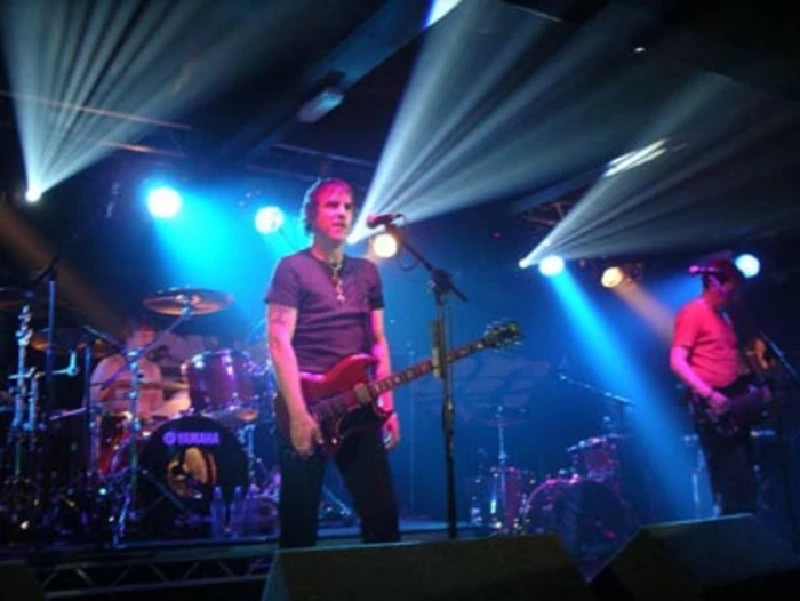
intro
Bradford rockers New Model Army recently celebrated their 25th anniversary. Frontman Justin Sullivan chats to Helen Tipping about the past quarter a century ; 'Carnival', his band's first album in five years and his group's legacy
This year marks the 25th anniversary of New Model Army. Formed in 1980 in Bradford to play 2 gigs, they were the darlings of the music press in the mid-80's, but then dropped out of view as the fashion of the times moved on. New Model Army have not stood still in that time, continuing to evolve their musical style. They are still going strong with a cult following from the USA to mainland Europe. Sadly their efforts remain unrecognised by a mainstream press with its views on the band stuck firmly in the past. Courting controversy in the early days, they were signed to EMI, before leaving to form their own record company, Attack Attack, which now produces not only their material, but that of up and coming bands, such as NYAAA (New York Alcoholic Anxiety Attack) another young Bradford band who will be supporting New Model Army in Leeds on their forthcoming mini-tour of the UK. They were recently involved in Freeborn John, a musical exploration of the life of the 17th century radical political thinker John Lilburne, conceived and written by Rev Hammer and performed at the Levellers organised Beautiful Days Festival. The individual members of the band have a number of their own projects, as does poet and author Joolz Denby, the band's promoter and vocalist Justin Sullivan's partner. New Model Army, as well as Justin, currently consists of Marshall Gill on guitar, Nelson on bass, Michael Dean on drums and Dean White on keyboards. The band's line up has changed over the years, with Marshall being the newest addition replacing Dave Blomberg. Justin feels that these changes are what helps to keep the band's musical style fresh and alive. Having just released 'Carnival', their first new album in 5 years, not counting Justin's solo album - 'Navigating By the Stars' released in 2003-they are touring extensively. Justin Sullivan took some time out before a recent gig in Sheffield to speak to Pennyblackmusic about the past 25 years, his influences, what he feels is important to him in creating music and about life in general. PB : New Model Army started after the initial punk explosions. A lot of those bands then didn't see themselves being around more than a few months. Did you ever envisage that New Model Army would still be going after 25 years? JS : God no, we formed the band to play 2 gigs in Bradford on the 23rd and 24th of October 1980. So no, there's not ever been any kind of plan. It's for its own sake. PB : Some people have been saying that 'Carnival'is a lot mellower than past albums. Now you've been going 25 years how do you feel your music and writing has changed or developed? JS: That's not true actually. I think it's considerably less mellow than 'Strange Brotherhood'or 'Eight' (New Model Army's 1998 and 2000 albums respectively-Ed)to be honest, so I don't think that's really true. As for how things have changed, I hope they've changed a lot - I think we try really hard never to write the same album twice and never to write the same song twice. If life is like a journey then it's a musical life - essentially it's like a journey of exploration. I know some bands sort of get a sound and then stick with it because that's how they define themselves. We don't really define ourselves by a sound. We kind of define ourselves by emotional content and that's kind of been the same from the very beginning. PB : I get the feeling that you're still very angry politically? JS : Well, it's a difficult time at the moment. We were talking about this last night actually on the bus, about the song 'Vengeance' (1994 single-Ed) which we haven't actually played since September the 11th because I haven't wanted to and it's because the world seems full of vengeance, but a lot of the early songs were sort of statements of intent and beliefs and so on and I pretty much stopped writing like that in the mid-80's almost because I'd said what I thought. Nowadays songs are kind of, they're just emotional responses and, especially on the new album, stories. They're kind of story songs, and okay, 'Another Imperial Day' which is the most obviously political song on 'Carnival' is there with a political intent in it, but really it's just a series of stories and I'm much more interested in poetry and stories than slogans, you know? PB : It is very poetic though, very metaphoric. JS : Yes it's much more interesting, and also again I don't want to repeat myself, people say things like "Why don't you write another song like Vengeance?" Why would I bother? I've written one. We don't repeat ourselves. I think it's quite interesting on this tour because we haven't toured a lot in Britain in the last 5 or 10 years really. We've always been more popular in mainland Europe. A lot of the audiences if they haven't been to recent gigs they've only got a vague memory, and they can't remember exactly what it was, but they thought it's all sort of was Post Punk or something. They've lost touch - and actually we went through a kind of folk period, we went through a hard rock period, we went through all sorts of different things. Recently I think this tour's really interesting, musically it's really interesting, and the audiences are having to stand back and take it all in musically because it's quite complex. You know the double drumkit thing and lots of different ideas all the time. PB : How do you feel about people dissecting the songs and looking for meaning in them? JS : Well I think they always will, and that's fine. I quite like it, I think that - I'm interested in ideas - there are lots of ideas in New Model Army. Some people think that New Model Army is a backdrop for a political agenda which it isn't. We did it first for musical reasons, and we still do it first for musical reasons. When it comes to the lyrics there's all sorts of metaphors and allegories and all sorts of stuff and they're all contradictory. Somebody said you can find a New Model Army song for every occasion. I think that's true actually because people have different moods. They have moods of utter despair and moods of hope. I sometimes think that bands divide themselves into two camps. There's the one where everything else is about human dignity and hope - U2, the Levellers, whatever - and we're not that but neither are we everything's dark, and everything's grim. We swing violently between the two things, which is how I think people are. PB : When you say it's a lot about the music, some of the other members of the band have their own projects and when I listened to the new album I thought I could hear sort of influences from some of those, for example Nelson's side project Kip Keino. JS : Well what Nelson brings, Nelson brings, and likewise with Dave though he's not here now, which is why having different members over the years has been really good for us. Everybody's free to bring in whatever they want to bring in. But at the end of the day it has a kind of New Model Army essence which is a certain energy and a certain romanticism. It has all the violence of nature in it somewhere. PB : In living in the North you get a lot more of that with the scenery and everything. JS : Yeah, I always like big landscapes which is why I like the North, though obviously you can tell by my accent that I'm a Southerner. For the same reason I like the west of America, the big landscapes, the big open thing - big music. PB : You also like the ocean. You write quite a lot about the sea and the ocean. Is that a similar thing ? JS : Yes, particularly the ocean. I think one of the reasons for that is that the essence of nature is change, the essence of all things that are alive is change. As soon as they stop changing they're dead and it's true of people, both at a biological level and at a spiritual level. As soon as you stop changing you're dead. And when you're by a mountain it's changing but you can't see it changing, it's changing on a different timescale to you - it's the same with a forest. But the ocean changes all the time. As you watch it's changing, it's moving, so I find that very soothing I think. PB : It has a lot of different states. It can be calm it can be really violent. JS : Oh yeah, yeah it changes all the time, in a way that you can recognise you can see it - just like people do. PB : I love the sea, but I feel as far away from it as I can be here. JS : Me too, living in Bradford. Maybe that helps. 'Navigating By The Stars' was written in Bradford. It wasn't written by the sea. The imagination is everything. PB : You've been involved with Rev Hammer on the Freeborn John project. On the subject of life and change and people say that history comes round again there isn't that much change. Do you see any parallels between the life people led then and now? JS : Yeah, people are exactly the same. I mean society is marginally different. We have more things, but people aren't any different to what we were a million years ago. There is a thing that if you took a stone age child and put him in a modern family he'd grow up as a modern human being, and if you took today's child and put them in a stone age family they'd grow up as a stone age person. Our emotional responses to things, which at the end of the day is what it's all about, are exactly the same. We want to be loved. We want to be warm. We want to have food. PB : At the end of the year, you'll have released the album and done a big tour. What are you plans for the new year? JS : Actually, I'll go back to Freeborn John. The Freeborn John story interests me because it's the classic story of someone who's very political and involved in a revolution and politics, who gradually gets disillusioned with that world of politics and in the end he becomes spiritual and at the end of his life became a Quaker. It's a very common journey. One of my favourite movies is the Malcolm X movie, which is the same journey through from being a wide-boy into politics and then into true spirituality and it's a very common journey. I'm sort of somewhere along that line, somewhere... Plans for next year? Probably more touring with this album. We might go back to America. We're doing some more in Europe in the new year. I don't know. I never know! PB : A bit of rest? JS : Well yeah, it would be good. PB : Any more writing? Do you write as and when or do you sit down to get on with it? JS : I tend to sit all the time with the acoustic guitar coming up with guitar riffs and ideas and bits of melody, Michael comes up with drums beats and they all get put in a "cupboard" called 'Our Musical Ideas.' They all live in there. All the time I have notebooks with ideas, a bit of a rant, stories that people have told me, then when it comes to writing a new album, we pull all of these things out of the two cupboards to see what goes with what and what matches up with what and kind of construct things out of that. That's how we work. 'Carnival' was written when we came back from America last year - we said now we're going to write an album and we tried very hard, and we tried jamming, and we tried pulling out ideas we had. I tried sitting with the acoustic guitar, just writing songs all different ways, and nothing happend for 3 or 4 months, nothing really interesting or original. Then we just had 2 weeks, mostly Michael and I where everything just clicked and we wrote the whole album in two weeks, which is often the way it happens. Experience has taught me to be patient, which is partly why there's so long between New Model Army albums, or Justin Sullivan albums, because I can write a song just like that but it has to have a purpose and to get it right sometimes you just have to be patient. Keep working, keep working and things come right. I don't really believe in writers' block. You just have better or worse times, and the worst times are if you go "Oh I've got writers' block" and you just stop. You've got to keep on writing and okay if it's not great, just keep on going and then you'll come through it. PB : What do you think about bands that put out albums very quickly and some of the material is weaker. Do you feel that there's a lot of pressure on them? JS : Probably yeah, there's lots of pressure. I mean if we could get it together to put out an album every 2 years, we'd have released a lot more albums. We'd probably be a lot richer but I'm not really interested in that. Even when we were with EMI there was a lot of pressure on us to deliver and we ignored it all. They would go "Where's the album ? " and we'd say when it's ready. The thing about major labels is that they want to make money. They assume you want to make money, so they tell you how to make money, and then occasionally they find a band that don't give a shit. I was never interested in money, that was never the point - so then they can't do anything. They can't write the songs for you. They just have to wait. PB : Do you think to some extent, that's why the NME never write about New Model Army. Do you think that's because the label isn't there saying you've got to write about this band? JS : Partly, but I think it's some received wisdom that we're some dinosaur punk band from 1984 and noone's listened to anything we've done since then, which is sometimes kind of a bit sad I think. I think actually we're quite a remarkable band musically, quite apart from all the lyrics and the ideas and the politics and all that - musically we're quite an interesting group and have been for a very long time. It's a kind of thing that the British music scene is interested in fashion and not music. It's interested in waves and fashion and movements. We had our 15 mintues of fame. Our 15 minutes lasted for 2 months in 1984 when we were the great new white hope and then the spotlight moved on, and actually we could barely play at the point. But by the start of the 1990's when we'd done some really interesting music, the 'Thunder and Consolation' stuff for example (New Model Army's 1989 album-Ed), no one was really listening. The thing is that from the very beginning, unlike a lot of British bands we didn't think the world revolved around London and we certainly didn't think that the world stopped at Dover. We thought the world began at Dover and so very early on we started travelling everywhere in Europe and America and everywhere, which is why we're a world-wide cult and we don't depend on England. PB : I think quite a few bands find that if they are unsigned in Germany then a lot of people will go and see them, whereas here it can be quite snobby if they're unsigned. It's a shame. JS : Yeah, England is a very claustrophobic society. It's a claustrophobic island and increasingly decadent, and we don't fit into a decadent mould - not at all. I think they find we're a bit strange. The music press is run by kids who are in love with decadence because what could be more exciting when you're young. I'd taken all the drugs and done all that stuff before I was ever in a band. By the time I was in a band I was looking for musical answers to stuff. PB : More like working as a poet but with music. JS: Yeah, yeah, and I've seen so many bands destroyed by cocaine that we had a rule in this band pretty early on that we weren't going to be destroyed by it. The thing about cocaine is you feel like God. I've just seen it band after band, tour after tour. As we have a crew and they work for other people I hear all sorts of stories about other people's tours and how they work and how they don't work - lots of tours and bands destroyed by it. The point is that you forget why you're doing it and I don't think we've ever forgotten why we're doing it. It's still the same thrill playing music as it always was to me. Music's still the same refuge, and the same safe place that it was for me when I was a teenager. You know teenagers fall out with their parents and fall in love with music. It's sort of a safe place if you listen to it, where you can make sense of the world and that's how it still is for me. It's a kind of sacred thing. PB : You don't think the revived interest in post punk is going to drag you in? There are quite a lot of younger people at your gigs. JS : I think it extremely unlikely but who knows. Yeah when you get outside of England there are a lot of people under 25. People may say why - it's because we're good. We do something that no one else quite does and all the best bands can say that. There's no band that quite sounds like us because they don't know what it involves. It's quite interesting getting a new member in. When Marshall first joined, he'd say "Oh I think I can make sense of this" and then he finds that he can't at all. It's a completely different way of making music and people will go "Your way of making music is just bizarre". And yet when it comes out it sounds completely natural as though it were dead easy, and it's become pretty natural to us, but we're told by outsiders that it's completely weird and idiosyncratic. PB : When you say your way of making music is different, I'd like to get to the bottom of that... JS : I think it's the way it's constructed. As Nelson's always complaining, none of the verses are the same. The first verse is different from the second verse. It's got different tags and different chords in it. The choruses are different lengths and they do in different places, that's one thing. The other thing is how every thing and every note affects everything else. It seems to all fit together but it's sort of constructed. And there's a lot of variety in this tour, though it's pretty full on. PB : Thank you. The photographs that accompany this article were taken by Neil Bailey
Band Links:-
http://www.newmodelarmy.org/https://twitter.com/officialnma
https://www.facebook.com/NewModelArmyOfficial
Picture Gallery:-
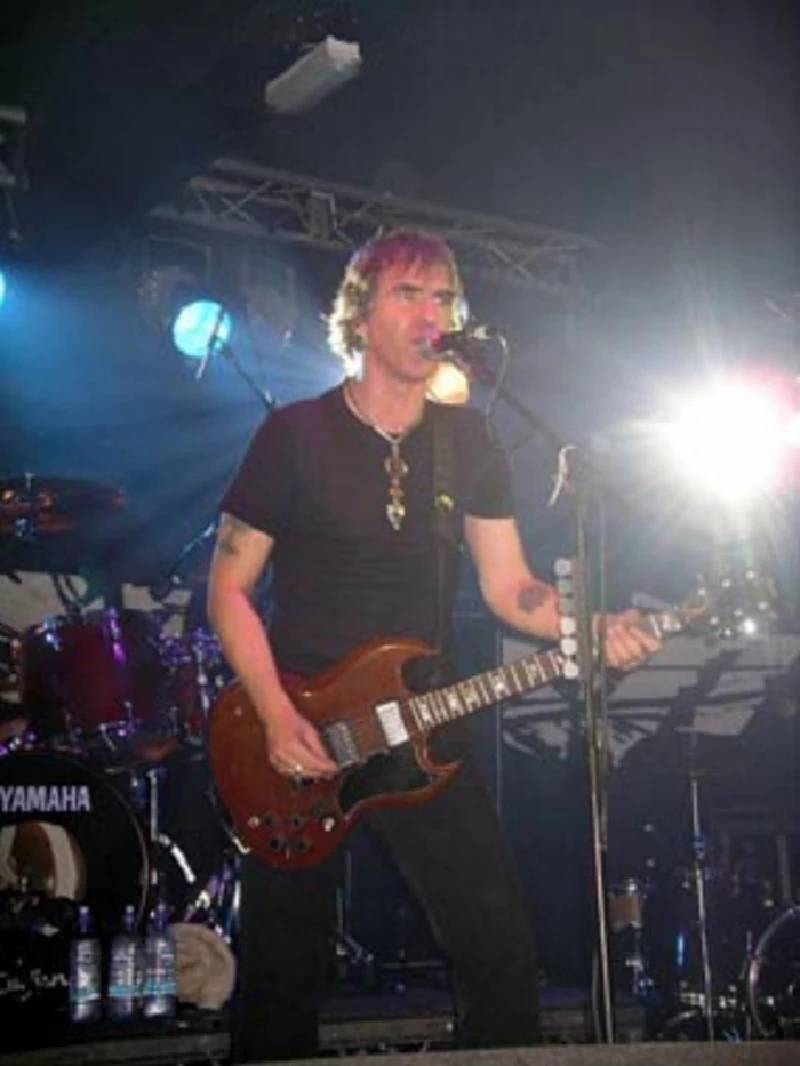
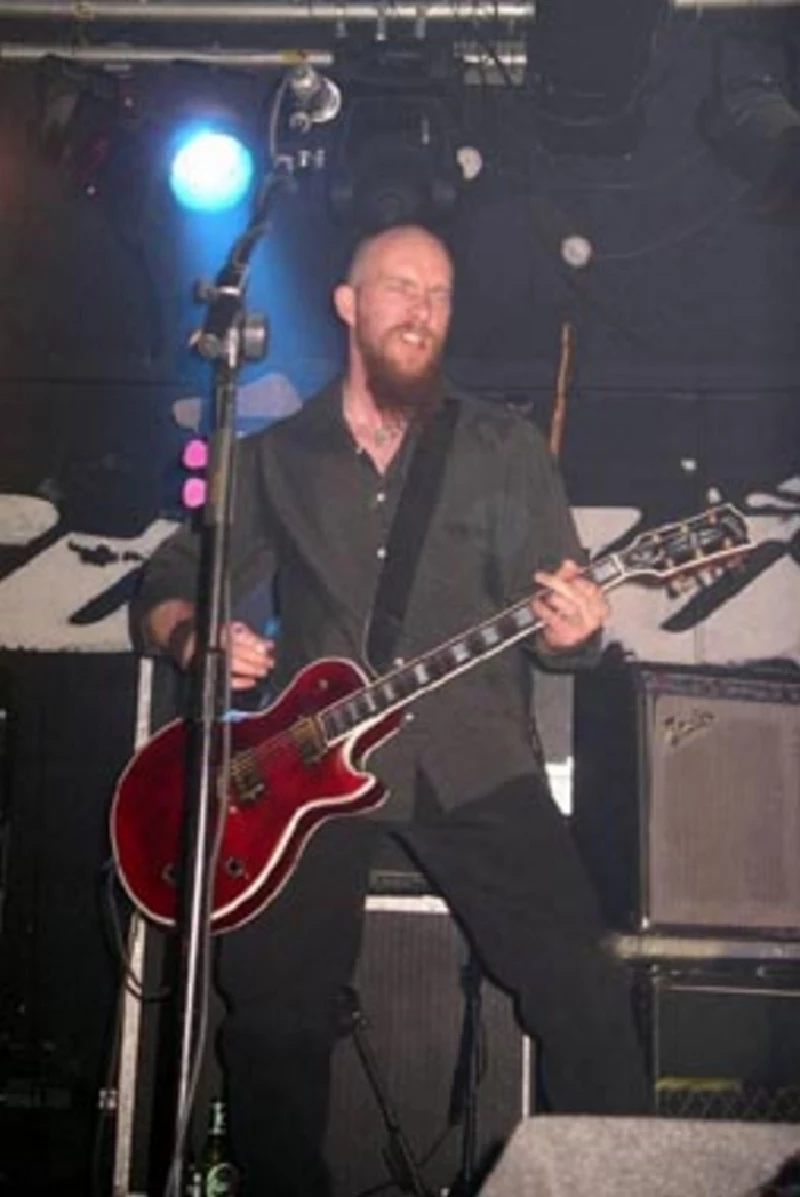
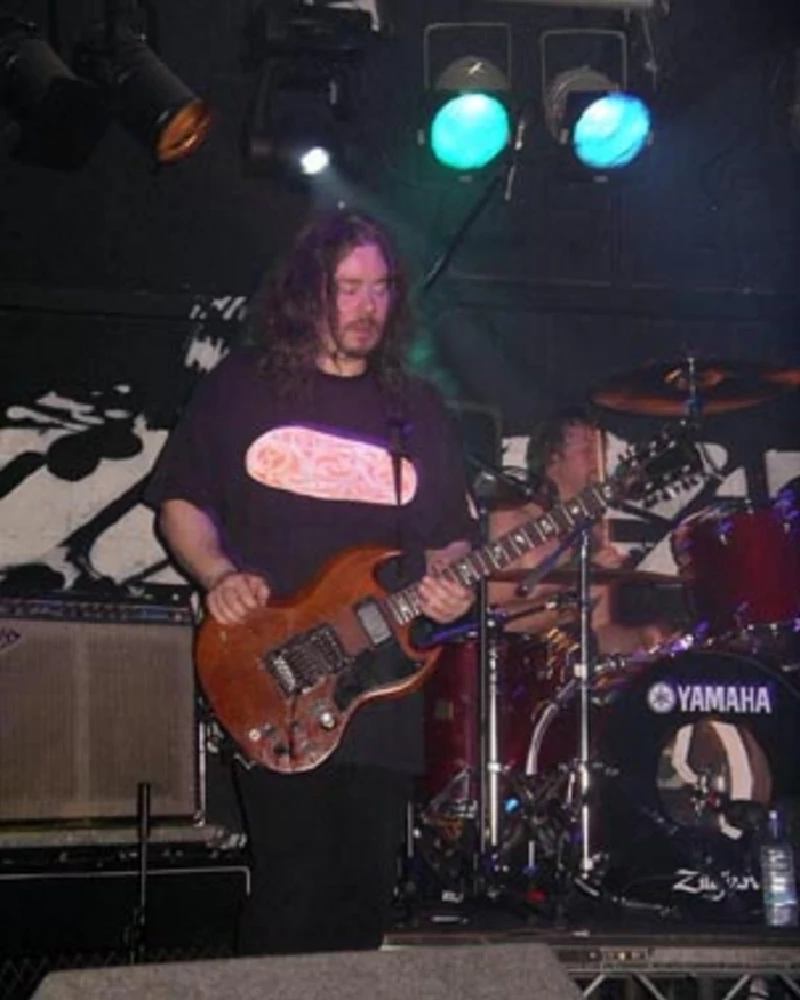
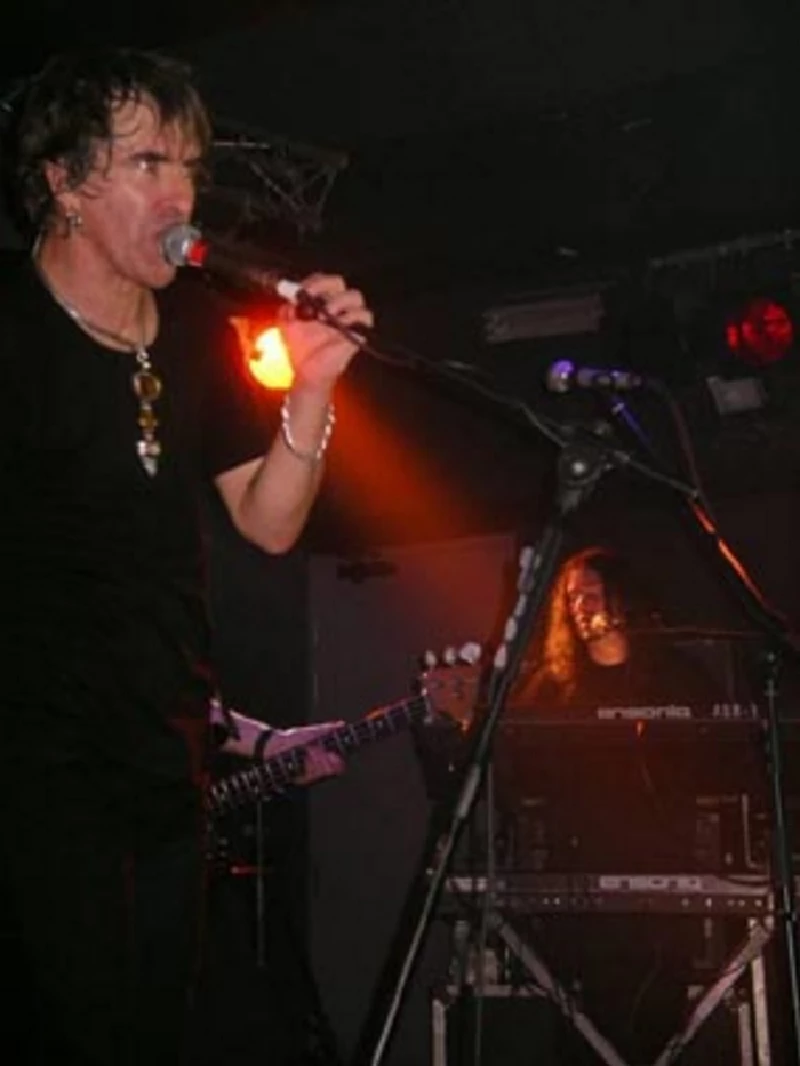
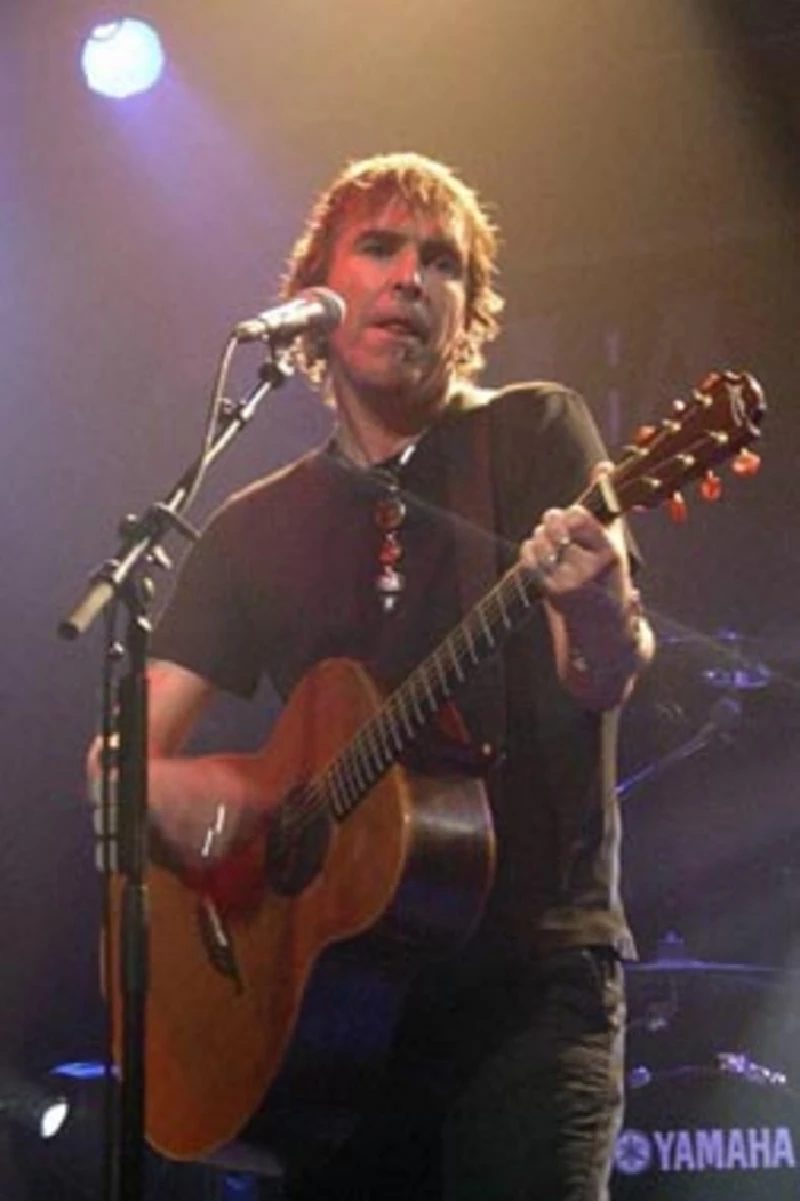
interviews |
|
Interview (2007) |
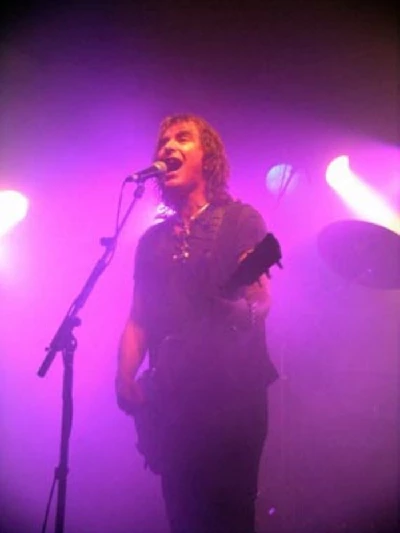
|
| In our second interview with New Model Army, Helen Tipping chats to frontman Justin Sullivan about his band's tenth studio album, 'High', and recent line-up changes in the group |
profiles |
|
DVD-Between Dog and Wolf: The NMA Story (2015) |
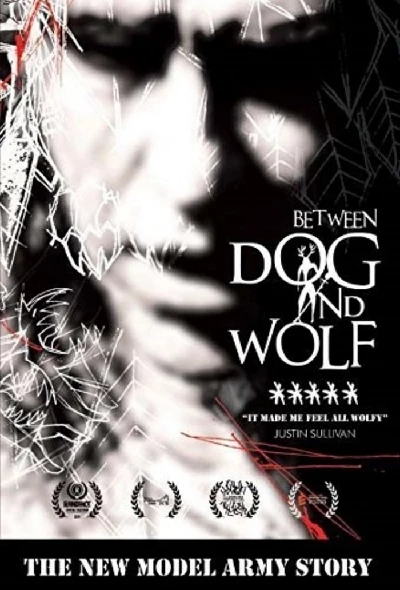
|
| Adrian Huggins examines 'Between Dog and Wolf', a feature length, career- charting documentary of legendary British band New Model Army. |
| New Model Army (2010) |
live reviews |
|
O2 Academy,Leeds, 19/3/2010 and O2 Academy, Liverpool, 20/3/2010 |

|
| At two shows in Leeds and Liverpool, Helen Tipping watches New Model Army play two very different shows and at the latter show to start to put in early preparation for their next and what will be their 30th anniversary tour |
features |
|
New Model Army 4 (2008) |
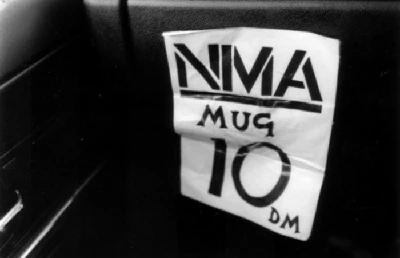
|
| In the remaining three parts of his revealing six part photographic montage and history, Russell Ferguson continues to chronicle New Model Army 90's hardcore fanbase which followed the band as it toured across Britain and Europe |
| New Model Army 5 (2008) |
| New Model Army 6 (2008) |
| New Model Army 3 (2008) |
| New Model Army 2 (2008) |
| New Model Army 1 (2008) |
most viewed articles
current edition
Carl Ewens - David Bowie 1964 to 1982 On Track: Every Album, Every SongBathers - Photoscapes 2
John McKay - Interview
Editorial - July 2025
Billie Eilish - O2 Arena, London, 10/7/2025
Simian Life - Interview
the black watch - Interview
Chris Wade - Interview
Cathode Ray - Interview
Sir Tim Rice - Interview
previous editions
Trudie Myerscough-Harris - InterviewPixies - Ten Songs That Made Me Love...
Boomtown Rats - Ten Songs That Made Me Love....
Heavenly - P.U.N.K. Girl EP
Fall - Hex Enduction Hour
Peter Paul and Mary - Interview with Peter Yarrow
Sam Brown - Interview Part 2
And Also The Trees - Eventim Apollo, London, 21/12/2014.
Place to Bury Strangers - Interview
Miscellaneous - Charity Appeal
most viewed reviews
current edition
Sick Man of Europe - The Sick Man of EuropeAmy Macdonald - Is This What You've Been Waiting For?
Phew, Erika Kobayashi,, Dieter Moebius - Radium Girls
Alice Cooper - The Revenge of Alice Cooper
Blueboy - 2
Lucy Spraggan - Other Sides of the Moon
Cynthia Erivo - I Forgive You
Bush - I Beat Loneliness
Davey Woodward - Mumbo in the Jumbo
Philip Jeays - Victoria
Pennyblackmusic Regular Contributors
Adrian Janes
Amanda J. Window
Andrew Twambley
Anthony Dhanendran
Benjamin Howarth
Cila Warncke
Daniel Cressey
Darren Aston
Dastardly
Dave Goodwin
Denzil Watson
Dominic B. Simpson
Eoghan Lyng
Fiona Hutchings
Harry Sherriff
Helen Tipping
Jamie Rowland
John Clarkson
Julie Cruickshank
Kimberly Bright
Lisa Torem
Maarten Schiethart